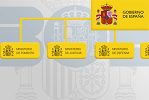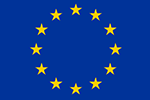European elections
Content
Citizens of another EU Member State who want to vote in European elections in Spain
To vote in European elections, it is necessary to be entered on the electoral roll for elections to the European Parliament. The requirements are as follows:
- Be registered as an elector in your municipality of habitual residence;
- Have stated your intention to vote in elections to the European Parliament in Spain; have undertaken to exercise this voting right only in Spain; have disclosed your last constituency in your country of origin so that you can be identified in your country of origin and avoid dual voting; and
- Be at least 18 years old on voting day.
-
Time limits for registering
European citizens resident in Spain can fulfil the electoral registration formalities and express their wish to vote in European elections at any time. However, to be included on the current electoral roll for elections to the European Parliament, there are two prior formalities to complete in good time, two or three months before the date on which the elections are called.
They can also, at any time, check their registration data in the electoral roll and, if incorrect, file a claim for correction.
The intention to vote in elections to the European Parliament is deemed to be permanent, unless revoked by the elector.
-
Procedure for entry on the electoral roll
To register as an elector, you must follow the procedure at the relevant town council.
You can state your intention to vote in elections to the European Parliament in Spain in your municipality, at the time of your entry on the electoral roll or later:
-
by attending the town hall in person;
-
by remote data transmission, if you have the Cl@ve mobile app, via the Electronic Office of the National Statistics Institute (INE)
 .
.
Claims regarding registration data can be carried out in the same way, either in person at town halls or electronically, if you have the Cl@ve mobile app, via the Electronic Office of the Spanish National Statistics Institute (INE)
 .
.In the months prior to municipal elections being called, the Electoral Census Office sends a letter to EU residents in Spain (to whom it has not written on the occasion of previous European Parliament elections) who have not formally stated their intention to vote. The letter informs them that, if they are interested in voting, they should formally state their intention to do so. The letter also includes an electronic access code (CTT) which you can use to state your intention to vote via a procedure currently handled via the Electronic Office of INE
 .
.With the declaration of your intention to vote in elections to the European Parliament in Spain, you must declare that you will only exercise this right in Spain. You must disclose your last constituency in your country of origin so that you can be identified, to avoid dual voting.
Once Community citizens resident in Spain have registered and declared an vote in the elections to the European Parliament, if they have access to Cl@ve, they can electronically check their registration data in the electoral roll at the Electronic Office of INE
 and, if incorrect, file a claim as indicated earlier.
and, if incorrect, file a claim as indicated earlier.Once the elections to the European Parliament are called, a specific section will be created on the INE's website that will incorporate all the procedures related to the electoral process, including the enabled electronic procedures such as: checking inclusion in the current census, filing claims during the electoral period, checking assigned polling station and location, and excluding copies of the electoral census given to political parties.
Those who have not been entered on the current electoral roll, or who find errors or omissions, may file a complaint to the Electoral Census Office of their municipality at any time, or between 6 and 13 days after the calling of European Parliament elections. The complaint will be resolved in accordance with the criteria established in the resolutions on complaints, of 27 October 2014 and 23 January 2017, of the Electoral Census Office.
-
-
Conditions which EU citizens must meet, and documents which they must supply, for entry on the electoral roll
The (padrón) register is a municipal register. The town council is responsible for compiling and managing it. To go on the municipal register, you must apply to your municipality of habitual residence and supply the requested documents.
There is only one requirement for the formality of stating your intention to vote in municipal elections in Spain: you must already be on the electoral roll and complete the form, either on paper at the town hall or remotely at the Electronic Office of INE
 . The paper form can be obtained from the INE's website to be filled out in advance ( CERE.DFA
. The paper form can be obtained from the INE's website to be filled out in advance ( CERE.DFA ). The undertaking to vote only in Spain, and the statement of your last constituency in your country of origin, are made on the same form as the statement of your intention to vote.
). The undertaking to vote only in Spain, and the statement of your last constituency in your country of origin, are made on the same form as the statement of your intention to vote. -
Information on compulsory voting
In Spain it is not compulsory to exercise voting rights.
Spanish citizens wishing to vote in European elections in Spain while living in another EU Member State
All the information is available in section Voting from abroad .
-
Time limits for registering
Spanish residents in other countries must be entered on the consular register in good time for inclusion in the current electoral register (CERA): two or three months before elections are called. Once elections are called, they must apply to vote no later than 25 days after the date of the announcement.
Residents in Spain who are abroad temporarily must register as non-residents at the consulate competent for the place where they are staying. When elections are called, they must apply to vote at the consulate no later than 25 days after the announcement of the election.
-
Procedure for entry on the electoral roll
The procedure is as described in the point above.
Those who have Cl@ve access can view their entry on the electoral roll electronically, at the Electronic Office of INE
 . When elections are called, they can check their inclusion on the current roll, via the procedures open to them at the Electronic Office of INE after the elections are called.
. When elections are called, they can check their inclusion on the current roll, via the procedures open to them at the Electronic Office of INE after the elections are called.Those who are not entered on CERA, or who find errors or omissions, can file a complaint at their consulate at any time or, when elections are called, they can do this between 6 and 13 days after the date of the announcement. Complaints will be resolved in accordance with the criteria prescribed in the resolutions on complaints, of 27 October 2014
 and 23 January 2017
and 23 January 2017 , of the Electoral Census Office.
, of the Electoral Census Office. -
Conditions which Spanish EU citizens must meet, and documents which they must supply, for entry on the electoral roll
The consular register is kept at the consular office. The consulate itself is responsible for compiling and keeping it. Applicants for entry on the consular register must go to the consular office, bringing the required documents.
-
Information on compulsory voting
In Spain it is not compulsory to exercise voting rights.
Requirements for EU citizens wishing to stand in the European elections in their host EU Member State
In accordance with the current regulations (Article 210 bis of the Organic Law on the General Electoral System), all residents in Spain may stand for election to the European Parliament. If they have not obtained Spanish citizenship, they must meet the condition of being citizens of the European Union.
They must also meet the following requirements:
-
Be eligible to stand for election under Spanish law (Article 6 of the Organic Law on the General Electoral System): be of legal age, resident in Spain, and not debarred from election; and
-
Hold the right to stand for office (be elected) in their Member State of origin.
Legal and/or technical references
-
Spanish National Statistics Institute

-
Council Directive 93/109/EC, of 6 December 1993, laying down detailed arrangements for the exercise of the right to vote and stand as a candidate in elections to the European Parliament for citizens of the Union residing in a Member State of which they are not nationals

-
Organic Law 5/1985, of 19 June 1985, on the General Electoral System Articles 38, 39 and 210 bis

-
Royal Decree 1621/2007, of 7 December 2007, governing a voting procedure for Spanish citizens who are temporarily abroad

-
Resolution of 12 April 2013 of the Electoral Census Office establishing the procedures and approving the application form for entry on the electoral roll for elections to the European Parliament for citizens of other countries of the European Union, resident in Spain

-
Resolution of 27 October 2014 of the Electoral Census Office on complaints about data entered on the electoral roll

-
Treaty on the Functioning of the European Union

-
"Infoelectoral" website











